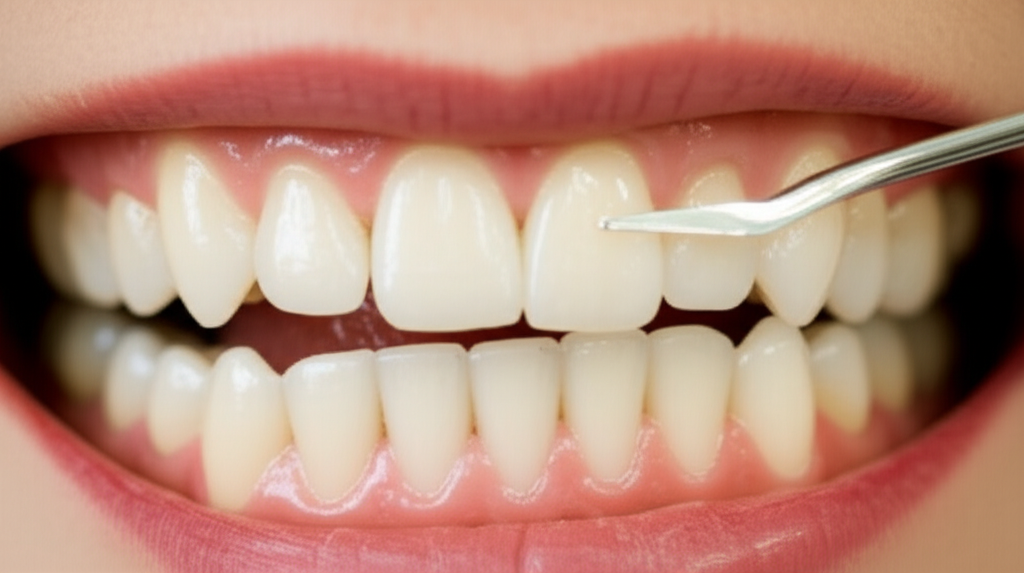
Does Illinois Medicaid Cover Dental Implants? Your Simple Guide to Dental Coverage
Dental care matters. Missing teeth can make you want to hide your smile, avoid eating, or not want to talk to people. If you have Illinois Medicaid, you might be asking if it can help pay for dental implants. This article will give you answers, explain what your insurance can pay for, and help you find good choices for your teeth. Keep reading—you’ll learn what you need and find easy steps to feel better about your teeth.
Table of Contents
1. Introduction: Why Dental Implants Are Important and What’s Going On?
Let’s be real. Losing one or more teeth is tough. It can make chewing hard, talking tricky, or even hurt to smile. Dental implants are the best choice for many—they act like real teeth. But the big problem is this: They cost a lot and are often too pricey for families on Medicaid.
So here’s what you want to know: Will Illinois Medicaid pay for dental implants? Or do you need to look at something else? Not knowing your options can feel frustrating, especially when it’s about your health. This guide is just for you—let’s go through the facts, one step at a time.
2. Are Dental Implants Covered by Illinois Medicaid?
No, most of the time, Illinois Medicaid does not pay for dental implants for adults.
That might be disappointing. Illinois Medicaid, run by the Illinois Department of Healthcare and Family Services (HFS), pays for a lot of basic tooth care. But it puts implants in a different spot—they call them not medically needed for most cases, or just for looks. Most Medicaid plans in other states do the same.
But there are very rare times when they might say yes. If someone loses teeth because of a big accident, serious sickness, or a problem from birth that only implants can fix, the state may decide to help. Still, even then, getting approved is hard and takes lots of paperwork. Almost all requests get turned down, unless the situation is really bad.
I’ve talked to many families and looked at what Illinois HFS and dental plans like DentaQuest and Molina Healthcare say. They make it clear: implants are almost never covered.
3. What Dental Services Are Covered by Illinois Medicaid?
Here’s something good. While implants usually aren’t paid for, Illinois Medicaid covers lots of other dental care. If you’re an adult 21 or older, here’s what you usually get:
Basic Check-Ups
- Exams and cleanings: Once or twice a year to keep your mouth healthy.
- Fluoride treatment: Some plans cover these, especially if you get lots of cavities.
Fixing Teeth
- Fillings: Mostly silver fillings, but sometimes you get tooth-colored ones in front teeth.
- Tooth removal: If a tooth is hurting or too broken, Medicaid often pays to take it out.
- Root canals: Sometimes paid for, mostly on front teeth, but you might need them to approve it first.
Fake Teeth
- Dentures – full or partial: Often covered, but you can only get new ones sometimes. Dentures help you chew and smile again!
- Dental bridges: Covered at times instead of dentures, if you need it and they agree.
Emergency Visits
- Help for mouth pain or other problems: Like bad toothache, infection, or hurting gums.
Table: What Illinois Medicaid Pays For Adults
| Service | Covered? | Notes |
|---|---|---|
| Dental Exams & Cleanings | Yes | Once/twice each year |
| Fillings | Yes | Silver; white in front teeth sometimes |
| Tooth Extractions | Yes | If needed; even wisdom teeth |
| Root Canals | Limited | Only for some teeth, with paper approval |
| Dentures | Yes | Full and partial, with time limits on new sets |
| Bridges | Sometimes | Certain needs, must ask first |
| Implants | Rarely | Only for big health problems, almost always not allowed |
If you are wondering about something else, talk to your Medicaid dental plan, like DentaQuest, Molina Healthcare, or Meridian Health.
4. Why Doesn’t Medicaid Cover Dental Implants? (The Reasons)
You might think, “If implants are best, why won’t Medicaid pay for them?” Good question.
Illinois Medicaid (and others) have to make money go as far as they can. They focus on fixing pain, stopping sickness, or letting you chew your food—not just what looks best. Experts call this “medically needed.”
Implants are usually called “just for looks,” meaning they help you look or feel better, but aren’t needed to keep you alive or stop sickness. Plus, implants cost much more than dentures or bridges. In Illinois, an implant is $3,000 to $6,000—sometimes more. A whole row of implants can be $30,000 to $50,000 or above. That’s a lot of money.
Because of this, Medicaid pays for dentures and bridges since they’re cheaper and still help you eat and talk. Implants are skipped, unless nothing else at all could solve the problem, and it’s a rare medical emergency.
5. Who Decides What’s “Medically Needed” in Dental Care?
Every Medicaid plan follows state rules. In Illinois, the Department of Healthcare and Family Services (HFS) and plans like DentaQuest or Molina Healthcare make a list of care that is needed for your health.
How they pick:
- If tooth care stops pain, treats infection, or helps you eat/basic use, then it’s usually allowed.
- Services that just help you look better, or can be done in a cheaper way (like dentures for lost teeth), are usually not allowed.
- Dental offices can ask for a special “yes” (an exception) if your health really needs that treatment.
Almost all implant requests are denied since dentures or bridges do pretty much the same thing for less cash.
6. How Can You Find Out What Your Illinois Medicaid Covers?
Each Medicaid plan is a bit different. Yours could offer more than someone else’s—especially if you’re pregnant or have a disability.
To check what you get:
- Call your Medicaid Managed Care Organization (MCO). The common ones are DentaQuest, Molina Healthcare of Illinois, Meridian Health, or Blue Cross Community Health.
- Read your member guide or handbook. It tells what’s covered and how often.
- Call the Illinois HFS helpline if you have more questions or trouble with your plan.
- Ask your dentist’s office. Most clinics know what’s covered if you have Medicaid.
Always check before you get big dental work—rules can change, and you don’t want to be surprised by a bill.
7. What Are the Alternatives to Dental Implants in Illinois?
If you can’t get implants, don’t worry. Here’s what Illinois Medicaid can help pay for instead:
Dentures (Full or Partial)
- If most or all of your teeth are gone, complete dentures are made to fit your mouth.
- If you lost only a few teeth, partial dentures fill in those spots.
- Dentures feel different, but they help you smile again!
Dental Bridges
- A bridge uses your own teeth beside a gap to hold in a new tooth.
- Medicaid pays for some bridges if you have strong teeth left.
- Bridges might need a special “yes” from Medicaid.
Take Care of Your Teeth
- Don’t lose more teeth! Brush, floss, and see the dentist for check-ups to keep what you’ve got.
Table: Choices Instead of Dental Implants
| Option | What It Is | Covered by Medicaid? | Notes |
|---|---|---|---|
| Full Dentures | Removable replacement | Yes | For people with no teeth |
| Partial Dentures | Removable, for some missing teeth | Yes | More than one style, rules apply |
| Dental Bridges | Fixed, fills gaps | Sometimes | May need approval |
| Implants | Permanent replacement | Rarely | Only for big health needs |
Need quality dentures or bridges? Consider a good removable denture lab or trusted crown and bridge lab.
8. How Can You Find Cheap Dental Care or Help?
Dentures and bridges still cost money, and other dental work is expensive. Here’s how you can get help in Illinois:
Community Clinics & Health Centers
- These clinics help people who don’t earn a lot of money, often using a sliding scale (pay what you can manage).
- Many clinics work with Medicaid and might give extra help.
Dental Schools
- Places like the UIC College of Dentistry in Chicago have students (supervised by dentists) fix your teeth. It takes longer, but often costs much less.
Non-Profits and Help Programs
- Some local groups help with money for dental care, but almost never for implants.
- National groups like Dental Lifeline Network sometimes help seniors or people with disabilities.
Discount Dental Plans
- Not insurance, but some places have deals for lower rates.
Payment Plans
- Some private clinics let you pay a bit at a time for big dental fixes.
Each clinic is different. Ask if they take Medicaid before you go.
9. What Should You Do Next? Easy Steps for a Better Smile
Let’s use PAS (Problem, Agitate, Solution) so it’s simple:
- Problem: You lost teeth and want something like implants, but you’re scared of the price.
- Agitate: It’s hard to chew, talking is not easy, and you don’t like to smile. Dentures might feel weird. When you find out Medicaid won’t pay for implants, it feels unfair.
- Solution: First, check what your dental plan gives you. Call your plan, get the answers in writing, and talk to your dentist about dentures or bridges. Look for community clinics, dental schools, or dental ceramics lab connections near you for good but cheaper care. With a bit of looking, you can smile again—without spending too much.
Speak up for yourself. And keep up your regular dentist visits—taking care now saves pain and money later.
10. Frequently Asked Questions (FAQ)
Q: Can I ever get dental implants with Illinois Medicaid?
A: Almost never. Only if you have a very bad accident or sickness that nothing else can fix, and even then, it’s very hard to get.
Q: What if I have a disability or am older, does Medicaid help more?
A: Sometimes there are a few extra benefits for these groups. Call your plan and ask.
Q: My dentist wants to make a bridge, but I heard they aren’t covered?
A: Some bridges are covered if you get approval. Your dentist must send Medicaid paperwork.
Q: Do kids get better dental coverage with Illinois Medicaid?
A: Yes! Kids under 21 have more procedures and coverage.
Q: Can my dentist help me get more services covered?
A: Many offices know Medicaid rules and can help you with the paperwork.
11. Main Points and Final Advice
Let’s sum it up:
- Illinois Medicaid does not cover dental implants for most adults, except in very rare medical emergencies.
- Dentures, bridges, fillings, root canals, and extractions are covered, so you can still get help to smile and eat again.
- Check your coverage by calling your dental plan or the HFS helpline.
- Cheaper care is available: Try local clinics, dental schools, and places like a removable denture lab or zirconia lab for good fake teeth.
- Take care of your teeth every day by brushing, flossing, and seeing the dentist.
- Speak up for yourself: If you are refused a treatment, ask your dentist what else you can do.
Reviewed by Dr. Joe Dental, Illinois State Dental Society
Remember: Losing teeth doesn’t have to mean losing your smile. With good info and a plan, you can find real answers—even if money is tight. Keep your chin up, ask questions, and keep smiling!








